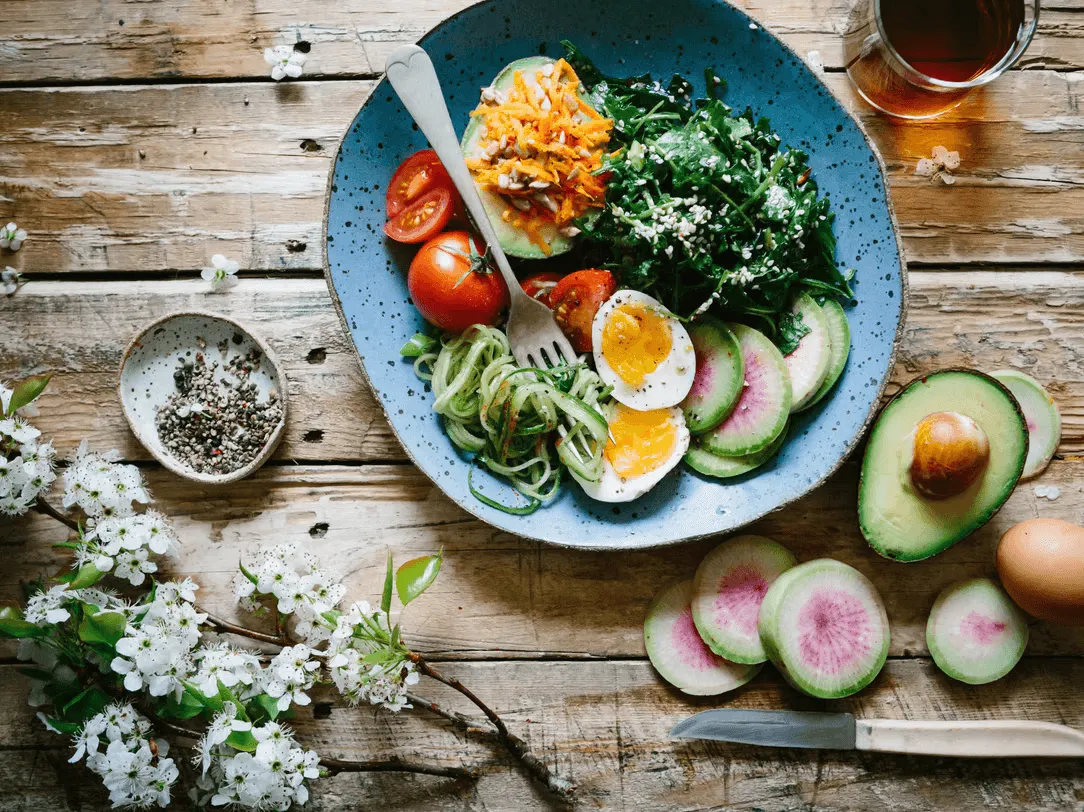
Why I Gave Up Veganism in Midlife (And What I Eat Now for Hormonal Health)
Why I Gave Up Veganism in Midlife (And What I Eat Now for Hormonal Health)
Sandra Spencer
Have you ever clung to something that once worked—long after it stopped serving you? That was me with veganism.
I was a committed vegan for 8 years. Before that, I had cycled through nearly every diet you can name: paleo, keto, vegetarian, pescatarian, raw vegan, ketotarian. I wasn’t just experimenting—I was searching. Searching for balance, for energy, for the “perfect” way to eat.
When I found veganism, it aligned beautifully with my values—Ayurvedic and yoga living, environmental consciousness, animal welfare. It made sense intellectually, spiritually, and emotionally. And for a while, it worked.
But when I reached my midlife years, everything began to change.
The Symptoms I Couldn’t Ignore Anymore in Midlife
Despite eating what most would consider an incredibly “clean” vegan diet in midlife, I started feeling off. Not in a dramatic way at first—but subtle signs began to build:
I was constantly tired, even after full nights of sleep.
My muscles felt weak.
My sleep quality declined.
My mental clarity and focus began to slip.
My mood and nervous system felt unstable.
I gained 30 pounds!
When I ran some functional labs, the numbers told a deeper story:I was deficient in iron, vitamin D, omega-3s, and magnesium—nutrients crucial for hormone regulation, brain health, immune function, and energy metabolism.
Despite high-quality supplements and food combining efforts, my body wasn’t absorbing or converting nutrients efficiently.

ReLearning to Listen to My Body
At first, I resisted. I didn’t want to believe that the diet I had so deeply trusted—one that aligned with my identity and values—was no longer working for me.
But Ayurveda reminds us:
“All food can be medicine or poison.”
The same food that heals one body can harm another—especially when constitution, age, and life stage change.
Midlife is a time of transition. Our digestion slows, our hormones shift, our resilience is challenged. The body speaks differently—and we’re invited to listen more closely.
So I did something I never thought I’d do: I reintroduced animal products.
Slowly. Reverently. With gratitude and intention.
Eggs. Bone broth. Fish. Eventually, high-quality, ethically raised meat. I simplified my meals. I focused on nourishment instead of restriction.
And something extraordinary happened.
What Changed After One Year after Giving up Veganism in Midlife
After a full year of transitioning to an omnivore diet with a focus on high-quality protein and nutrient density, here’s what improved:
✅ My energy returned
✅ My sleep became deeper and more restorative
✅ My lab markers normalized—especially iron, vitamin D, and omega-3s
✅ My brain fog lifted
✅ My body felt stronger and more resilient
✅ I lost 15 pounds without even trying
The Science: Why Midlife Women Need More Protein
As we age, especially through perimenopause and beyond, our protein needs increase dramatically. Here's why:
Muscle preservation – We naturally lose muscle mass (sarcopenia) after age 40. Protein supports strength, metabolism, and mobility.
Hormone support – Protein provides amino acids needed to support neurotransmitter and hormone function.
Blood sugar balance – Protein helps regulate insulin, preventing the spikes and crashes that fuel mood swings and weight gain.
Bone density – Along with resistance training and minerals, protein protects bones as estrogen declines.
Satiety and cravings – Protein keeps you full and satisfied, reducing sugar cravings and late-night snacking.
Research shows that women over 40 need at least 1.2–1.6 grams of protein per kilogram of body weight per day—far more than the outdated RDA of 0.8g/kg. For most midlife women, that’s around 90–120g of protein daily.
And yet, many women—especially those on plant-based diets—struggle to meet even half that.

Ayurveda + Science: A New Perspective
This shift wasn’t about rejecting the wisdom of veganism—it was about honouring the wisdom of my own body.
Ayurveda teaches us to be intuitive, individualized, and seasonal in our approach. What works for one person (or season of life) may not work for another.
That’s what I now teach my clients:
There is no single “right” diet. There is only the right diet for you, right now.
And in midlife, that often means letting go of outdated rules, tuning into new rhythms, and embracing the nourishment your body actually needs.
Final Thoughts: It’s OK to Change
Letting go of veganism felt like shedding an identity. It was emotional, even painful at times. But it also opened the door to deeper healing, vitality, and strength.
We also need to reduce inflammation, stabilize blood sugar, and nourish our nervous systems — all of which are harder to achieve with restrictive or overly-processed plant-based diets during this stage of life.
No — I’m not anti-vegan. I’m pro-intuition. Pro-listening. Pro-personalization.
I share this not as a prescription, but as a reflection. If you’re finding that what once worked no longer does — if your midlife body feels like it’s changing faster than you can keep up — I want to affirm that it’s okay to shift. It’s okay to evolve. It’s okay to unlearn.
Your body is wise. If you’re in midlife and your current approach isn’t working… it’s okay to pivot. It’s okay to listen.
It’s okay to evolve.
Your body isn’t betraying you. It’s inviting you into a new season of nourishment.
With love and respect,
Sandra Spencer
Holistic Health & Nutrition Practitioner | ReAwakenHER™
Ready for a more soulful way to feel well? Explore my 1:1 coaching here → Work With Me
